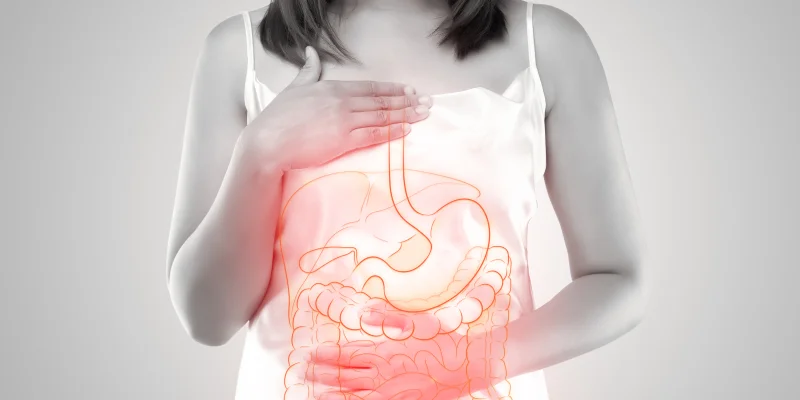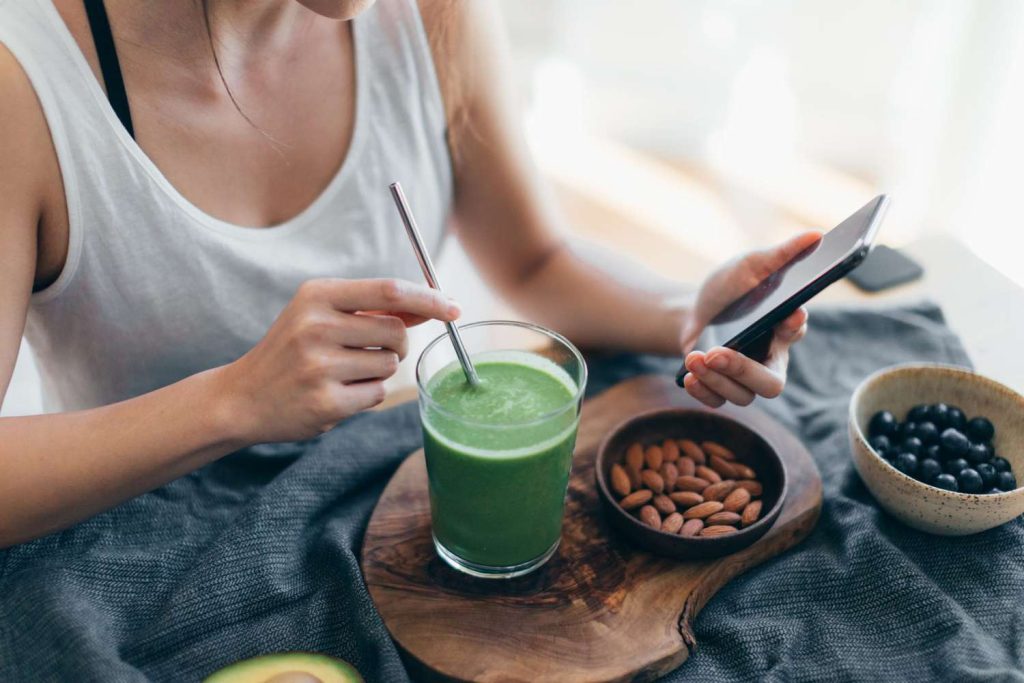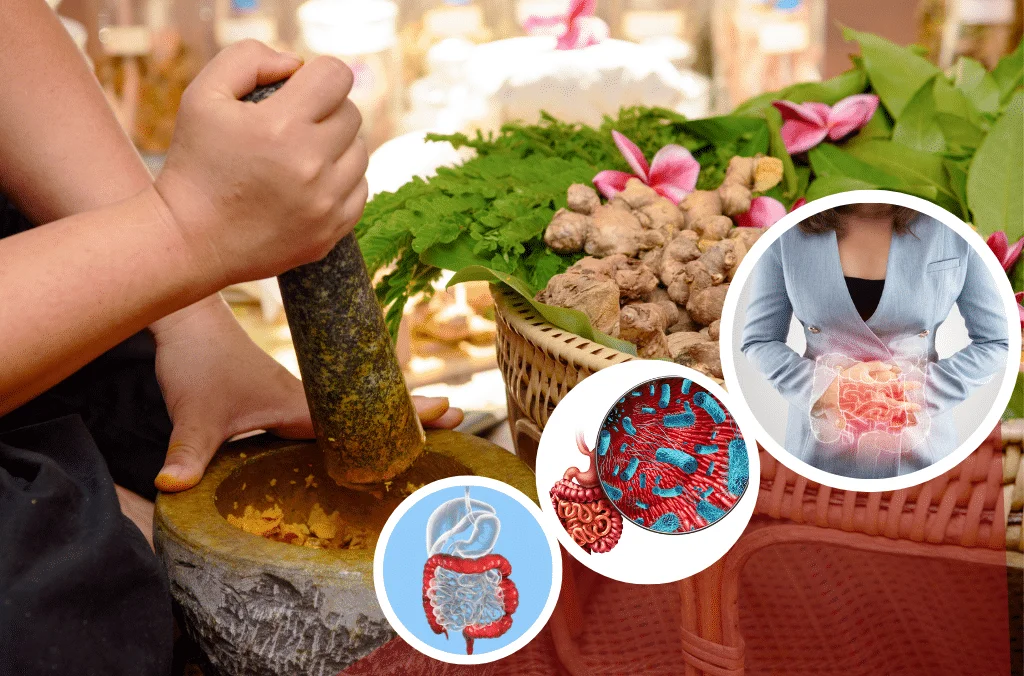Discover Relief with Ayurveda Treatment for IBS in Kerala at Samwarthika Ayurveda Hospital. Customized Holistic Approaches for Effective IBS Relief. Experience Genuine Healing.
Irritable bowel syndrome, commonly abbreviated as IBS, encompasses a range of symptoms primarily impacting the digestive system and the intestines. It is also referred to by several alternative names, including spastic colon, irritable colon, mucous colitis, and spastic colitis.
It’s essential to note that IBS is distinct from inflammatory bowel disease and is not associated with other gastrointestinal disorders. The intensity and duration of its symptoms can vary among individuals. However, they typically persist for a minimum of three months, occurring on at least three days per month.
What are the Symptoms of IBS ?
Irritable bowel syndrome (IBS) is characterized by a set of common symptoms, with the most prevalent ones being abdominal pain that is often associated with bowel movements and alterations in bowel habits. These changes can manifest as diarrhea, constipation, or a combination of both, depending on the specific type of IBS you have.
Additional symptoms associated with IBS may include:
Bloating
A sensation of incomplete bowel movements
Presence of whitish mucus in your stool
Women with IBS may notice that their symptoms tend to worsen during their menstrual periods.
It’s important to note that while IBS can be painful and discomforting, it typically does not lead to other significant health issues or cause damage to your digestive tract.
To diagnose IBS, your doctor will analyze the pattern of your symptoms over time. IBS is considered a chronic condition, meaning it persists for an extended duration, often lasting for years. However, the severity and frequency of symptoms may vary and can come and go over time.
The exact causes of Irritable Bowel Syndrome (IBS) remain uncertain, and experts believe that it may result from a combination of factors that can vary from one individual to another.
What Causes IBS ?
Several factors are more commonly found in individuals with IBS, and these factors are believed to play a role in the development of the condition. They include:
§ Stressful or challenging early life events, such as experiences of physical or sexual abuse.
§ The presence of certain mental disorders, such as depression, anxiety, and somatic symptom disorder.
§ Previous bacterial infections in the digestive tract.
§ Small intestinal bacterial overgrowth, which involves an increase in the number or changes in the type of bacteria in the small intestine.
§ Food intolerances or sensitivities, where specific foods can trigger digestive symptoms.
Research has also suggested that genetic factors may make some individuals more predisposed to developing IBS. In summary, IBS is likely a complex interplay of various factors, with a combination of genetics, brain-gut interactions, and environmental influences contributing to the development of the condition.

Bio-Detoxification, which is commonly referred to as Panchakarma, holds a vital role in the treatment of Irritable Bowel Syndrome (IBS). The selection of Panchakarma procedures, including Virechana, Basti, Dhara, is tailored to the specific subtype of Grahani (IBS) a patient is experiencing. These therapeutic techniques work towards enhancing intestinal function, correcting digestive imbalances, promoting the equilibrium of gut flora, and ensuring regular and healthy bowel movements. Each patient receives a personalized treatment plan designed to facilitate their complete recovery.

Irritable bowel syndrome (IBS) can result in a range of unpleasant symptoms, such as abdominal pain, constipation, and diarrhea. Nonetheless, there exist numerous lifestyle adjustments and home-based remedies worth considering for possible relief. It’s crucial to acknowledge that the effectiveness of these approaches can differ from person to person, so it’s essential to identify the remedies that suit you best in order to ease your discomfort.
Why Should I Choose Samwarthika for Ayurveda Treatment for IBS ?
At Samwarthika, a thorough evaluation by a qualified Ayurvedic practitioner is conducted. This assessment considers the individual’s Prakriti (general health and body constitution) to formulate a tailor-made treatment plan based on one’s body type. Ayurvedic therapy focuses on the individual’s holistic well-being and places a strong emphasis on disease prevention and the management of an unhealthy lifestyle.
Frequently Asked Questions
How can I get immediate relief from IBS problems?
Engaging in a brief 15- to 20-minute break with gentle heat can offer relief from the discomfort associated with IBS. This simple act of taking a break not only provides a moment of relaxation but also helps in soothing your abdominal muscles.
What is the best drink for IBS?
You have a variety of tea options to choose from, including black, green, white, and herbal teas, which are suitable for individuals with various preferences. If caffeine is a concern for you, consider switching to decaffeinated varieties. Additionally, moderate consumption of coffee and hot chocolate is acceptable. To replace traditional creamer, consider using milk substitutes.
What are the 5 steps to permanently cure IBS?
Test for IBS Triggers: Identify and test potential triggers that may exacerbate your IBS symptoms. This could include specific foods, stressors, or other factors that affect your digestive health.
Inquire About Medications: Consult with a healthcare professional to discuss medications that may help manage your IBS symptoms. They can recommend suitable options based on your individual needs.
Start a Low-FODMAP Diet: Consider adopting a low-FODMAP diet, which involves avoiding certain fermentable carbohydrates that can trigger IBS symptoms. This dietary approach may help alleviate discomfort for some individuals.
Make Lifestyle Changes: Implement lifestyle changes to reduce stress and promote better gut health. This may include stress management techniques, regular exercise, and adequate sleep.
Take Gut-Healing Supplements: Some individuals find relief from IBS symptoms by incorporating gut-healing supplements or probiotics into their daily routine. Consult with a healthcare provider to determine which supplements may be beneficial for you.
Can IBS heal itself?
Irritable Bowel Syndrome (IBS) is generally considered a chronic condition, and as of the current medical understanding, it is not considered reversible or curable. However, it’s essential to note that symptoms can be effectively managed, and many individuals experience significant relief through a combination of lifestyle changes, dietary adjustments, and medical care.
While some healthcare professionals may hold the view that IBS can be eliminated with the right approach, it’s important to approach IBS management with a personalized plan tailored to the individual, as there is no one-size-fits-all solution. Treatment and management strategies can greatly improve the quality of life for those living with IBS.

